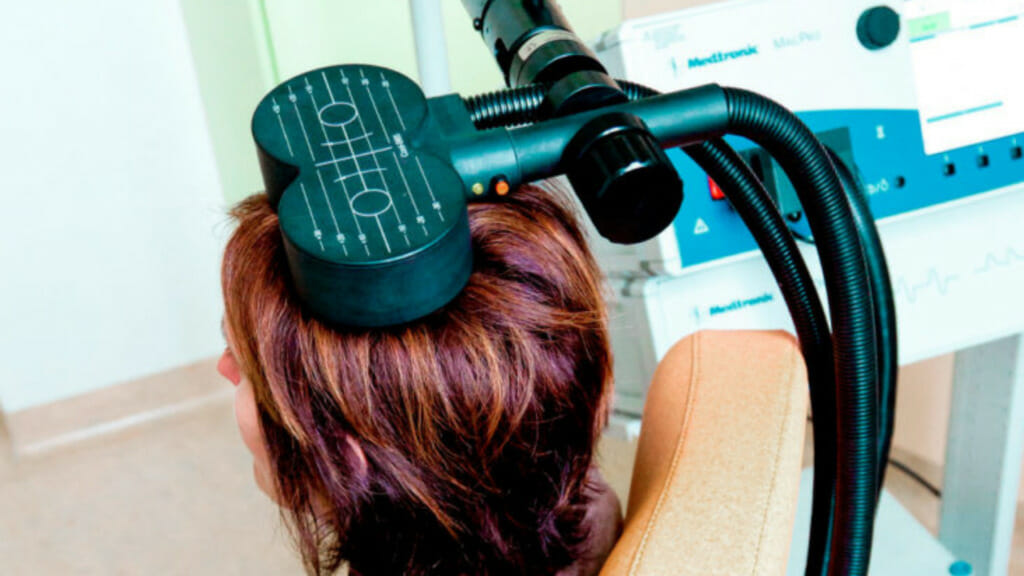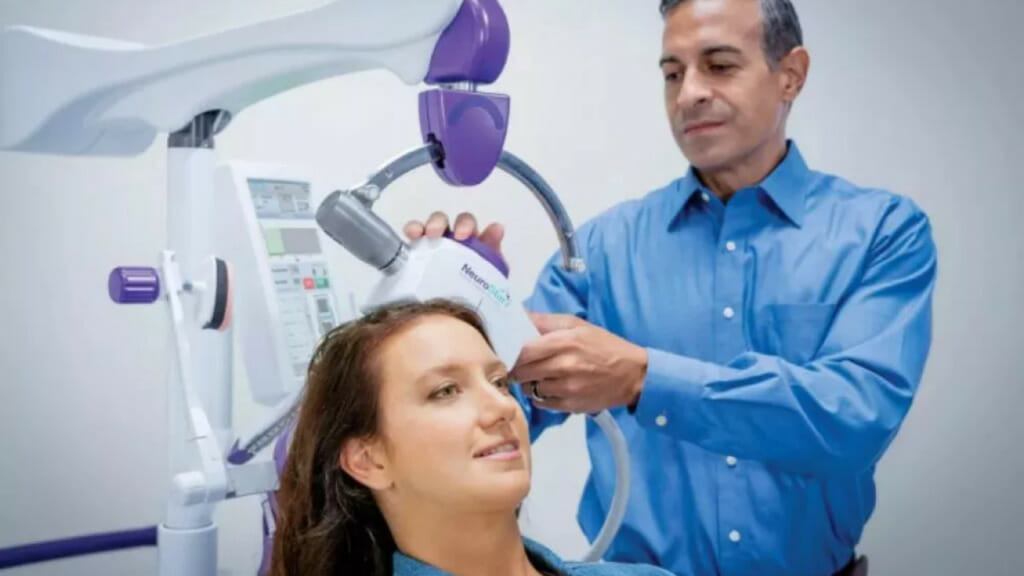Transcranial magnetic stimulation (TMS) is a non-invasive form of brain stimulation in which a magnetic field is applied to a specific area of the brain to change how the neurons (cells of the brain) communicate with each other.
Types of Transcranial Magnetic Stimulation (TMS) Therapy
Two common types of FDA-approved TMS are Repetitive transcranial magnetic stimulation (rTMS) and Deep Transcranial Magnetic Stimulation (dTMS).
Deep TMS Therapy and Repetitive TMS Therapy are both noninvasive brain stimulation therapies. However, there are differences in the intensity and number of treatments required.
How TMS Works as a Brain Stimulation Therapy

An electromagnetic coil is applied to the scalp and the magnetic field generated by the coil can affect the neurons of the brain without any physical penetration of the skin, bone, or muscles of the head. Through stimulating specific parts of the brain with this technology, therapeutic effects can be observed in numerous psychiatric and neurological conditions such as depression, Alzheimer’s disease, anxiety disorders, traumatic brain injury, and many more.
Is TMS Treatment Safe?
At this time, major depressive disorder is one of the most common mental health disorders treated with TMS. It has been FDA-approved for over a decade in its application in treating depression.
Although it is not completely understood how TMS treats depression, studies suggest that repeated electromagnetic stimulation to the brain causes an increase in cerebral metabolic activity and a growth in synaptic plasticity which lasts even after the stimulation procedure is over.
Are There Any Risks?

TMS therapy is regarded as a safe and effective procedure to stimulate nerve cells and brain areas that are associated with depression. However, as with any medical intervention, there are risks of adverse effects. Some of the most common side-effects that are reported are headaches or tingly sensations felt over the face and/or scalp.
[Read: There is Hope for Treatment-Resistant Depression]
The Future of TMS as a Treatment for Depression

As an advanced form of antidepressant treatment, the clinical efficacy of TMS has been well established. Although the exact mechanism in which TMS exerts antidepressant effects is not completely known, it may be due to the promotion of neurogenesis.
Further research may one day provide us with more knowledge regarding its exact mechanism and reveal additional clinical applications of this emergent technology.
To know more about TMS as a treatment option for depression, you may consult with our psychiatrist team at PNS for evaluation and consultation.

